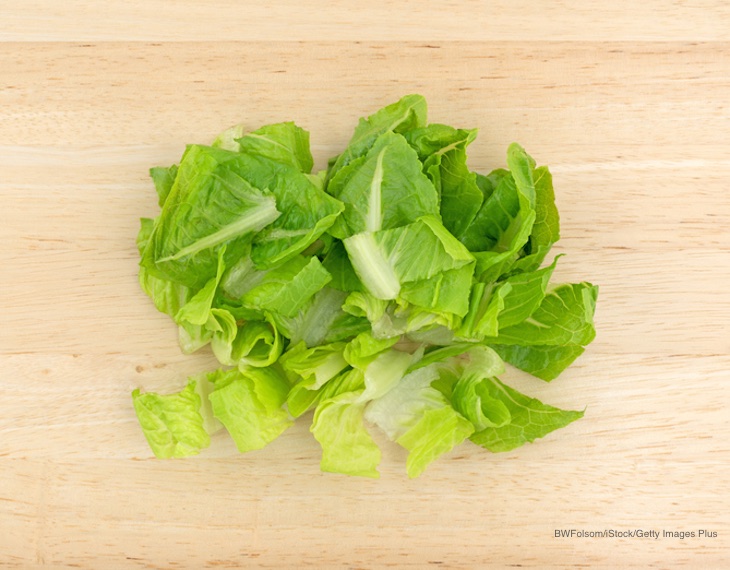Wisconsin officials found E. coli in Fresh Express romaine salad from Salinas, California, according to the Wisconsin Department of Heath Services. This outbreak is the large one that is linked to romaine harvested in Salinas, California, with at least 102 people sick and 58 hospitalized. More laboratory testing is pending to see if the bacteria found in the romaine matches the strain that has caused the illnesses in the outbreak.

Another Fresh Express product, Fresh Express Sunflower Crisp Salad Kit, is linked to second E. coli outbreak that has sickened nine people in Minnesota, Wisconsin, and North Dakota. According to the CDC, whole genome sequencing conducted on isolates from people in that outbreak does not match the isolates taken from patients in the larger outbreak. And they aren’t sure whether the romaine in that kit or some other ingredient was contaminated.
The bacteria was found in an unopened bag of pre-washed chopped romaine lettuce in a product called Fresh Express Leafy Green Romaine. That lettuce has a use by date of 11/14/2019 and a lot code of Z301 A05B. The lettuce source is Salinas Valley, California.
As of December 9, 2019, Wisconsin has 33 cases of E. coli O157:H7 illnesses in the larger outbreak. Two people have developed hemolytic uremic syndrome (HUS), and fourteen people have been hospitalized. The illness onset dates range from November 7, 2019 to November 19, 2019.
The Wisconsin press release states that “it is important to note that not all ill persons in Wisconsin that are included in this outbreak have reported consuming Fresh Express® brand salads.” No single product, brand, or variety of salad has been identified that was consumed by all ill individuals. Officials are investigating to try to determine the source of contamination, and if more products are linked to these illnesses.
The Wisconsin Department of Health Services is telling consumers not to consume any products containing romaine lettuce from Salinas Valley, California, regardless of brand. This advice echoes the advice by the CDC and FDA. Consumers need to check all romaine containing products carefully. The harvest region can be printed in very small type on the back of some of these packages.

Noted Minnesota food safety attorney Fred Pritzker said, “Long term complications from an E. coli outbreak can be serious even after a patient recovers.” You can contact Fred for help by calling 1-888-377-8900 or 612-338-0202.
The harvesting season in the Salinas Valley area allegedly ended on November 30, 2019, but this bulletin from Wisconsin states that “romaine from Salinas Valley is still available on many store shelves. It is important to look at product labels for any mention of Salinas Valley, California, and avoid purchasing these products.”
So check your refrigerator for any romaine lettuce-containing product, including chopped romaine, baby romaine, prepackaged salads, and bulk romaine, to see if is marked with Salinas Valley. If so, throw it away immediately. If the lettuce isn’t marked with a harvest area, throw it away. Then clean your refrigerator with a mild bleach solution. Wash your hands well with soap and water after handling the product and after cleaning.
If you ate any product containing romaine lettuce and have been sick with the symptoms of an E. coli O157:H7 infection or HUS, see your doctor. E. coli food poisoning symptoms include a mild fever, possible vomiting, severe and painful stomach cramps, and diarrhea that is bloody and watery. Symptoms of HUS, a type of kidney failure, include little urine output, bleeding from the nose and mouth, pale skin, lethargy, and small unexplained bruises.




